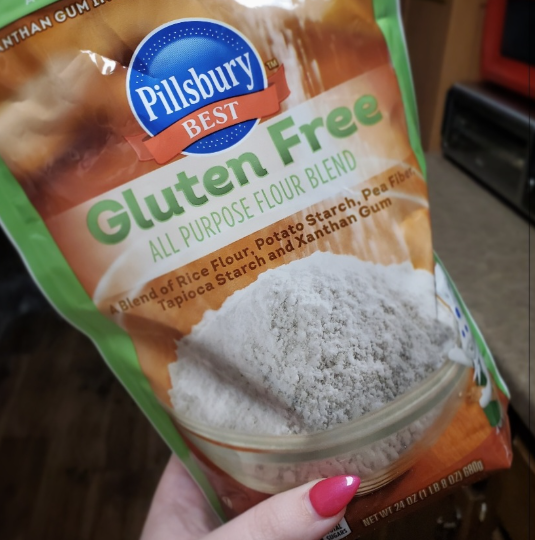Just because it isn’t an allergy doesn’t make it my preference.
I slowly move to the front of the line at Blaze Pizza to order my build your own gluten-free pizza. “Allergy or preference?” the unknowing employee asks me. I frown under my mask. I have been trained to say something I disagree with. “Preference,” I utter, still trying to be polite. Thus the process goes for ordering gluten-free items.
The question “Allergy or preference” bothers me more than it should. One of my close friends has Celiac Disease, a chronic illness characterized by an allergy or immune reaction to gluten, a protein found in grains such as wheat and barley. If she comes into contact with gluten, she might expect to faint and feel the consequences of her folly for days. As such, she doesn’t eat out often. Restaurants may have “gluten-free” items that have now been changed to similar sayings like “gluten-friendly” due to legal concerns. While the contents of the meal are gluten-free, the restaurant kitchen is not, and the gluten-free ingredients may become cross-contaminated by wheat while being processed and cooked in the kitchen. Many restaurants I’ve been to will often clarify that their dishes are not gluten-free because they are cooked in the same fryer as glutenous meals, making the gluten-free options no longer safe for people with Celiac disease. At that point, I’d wonder why the restaurants even offer gluten-free buns or the like if the gluten-free ingredients aren’t really what they aim to be.
Unlike my friend, I do not have Celiac disease. I have IBS (Irritable Bowel Syndrome) and recurring episodes of Colitis, or inflammation of the colon. For 8 weeks in 2020, I was on the really restrictive low-FODMAP diet, which eliminated common food triggers such as dairy, excess sugar fruits and of course, wheat. After 8 weeks without all high FODMAP foods, I slowly started adding food groups back into my diet to see if they caused IBS symptoms such as diarrhea, painful stomach cramps or bloating so bad I looked 5 months pregnant. The results of the diet were clear: I had a very bad sensitivity to oligosaccharides, or soluble plant fibers present in onions, garlic and wheat. While trying to refrain from onion and garlic contamination is nearly impossible in savory foods, I found that a gluten-free diet without wheat immensely helped resolve my most painful symptoms. However, I tell people I am gluten-free because most people do not know what oligosaccharides are, and I don’t like educating each waiter, food worker or colleague about them. It’s just easier to say I am sensitive to the proteins in wheat instead of the sugars in it.
That being said, my reaction to accidental wheat exposure is not the same as that of my Celiac friend. Her symptoms are immediate. Mine build up over time, whether that is a couple hours or a couple weeks before the start of extremely painful cramps and the need to be constantly on the toilet during the day. Her symptoms can be more deadly. Mine, on the other hand, are exceptionally painful and usually can at least be treated immediately to prevent deadly loss of blood. While our diets are similar, our consequences for straying from the diet are not. I understand that.
What I don’t understand is the question I am asked every time I go to Blaze Pizza or other “gluten-friendly” restaurants. Being gluten-free is not a preference of mine. I absolutely hate being gluten-free. Everything is twice as expensive as its glutenous counterpart, and almost no free food events put on by student organizations have good gluten-free food options for those of us who can’t indulge in bison cookies and large sheet cakes. I’ve had to give up many of my favorite foods including Cheez-Its, white chocolate macadamia nut cookies and my beloved cheddar bay biscuits from Red Lobster. Any time I cheat on my diet, my body pays a heavy price, sometimes one so bad that I end up in the emergency room.
Honestly, the question feels stupid. You might as well ask whether or not I am worth cross-contamination. You might as well tell me your gluten-friendly menu only exists for the sake of the restaurant looking inclusive, rather than actually being inclusive. Heck, maybe you can just ask me if I’d like you to switch gloves or not. Being gluten-free is not a preference like those of vegetarians who are against animal maltreatment. Just because my pain is not the same as that caused by Celiac disease doesn’t mean it is my preference to live pain free. Most people like to live pain free. Pain absolutely sucks. Please stop asking me this question. My pain is real, and living without it is not just a preference. It’s a medically necessary need. Act like it.
